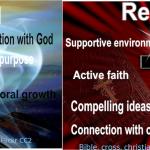The Adventurous Lectionary – The Tenth Sunday after Pentecost – July 28, 2024
2 Samuel 11:1-15
Psalm 14
Ephesians 3:14-21
John 6:1-21
This week’s passages encompass the polarities and ambiguities of life. They contrast the duplicity of the powerful with the generosity of the marginalized. They join themes involving the individual and communal, scarcity and abundance, and fallibility and grace. They are spiritual and also intensely political as they call us to go beyond self-interest to world loyalty and scarcity to abundance. They call us to look beyond our pleasure and power to embrace the power of love and sacrifice. Connected with God, we have everything we need to succeed, prosper, serve God, and support God’s vision of Shalom.
Close to God’s heart, David is an ambiguous hero. His duplicity and immorality may give confidence to some who support morally bankrupt politicians in our time. They say, if God can use Cyrus and David, he can use their God-chosen candidate. Tempted and seduced by beauty, taking advantage of his political power to sleep with Bathsheba, desperately attempting to cover it up, and then going as far as killing her husband Uriah to achieve his goal of avoiding conflict and embarrassment. David’s behavior is disgraceful and unjustifiable. He has no defense for his abuse of power in his relationship with Bathsheba and in the murderous coverup. The one who passionately danced for God became equally ecstatic and lost himself in a woman’s beauty and will do anything to get his way with her. It is his fault. Period. David trades divine for carnal Eros; he focuses on his own well-being rather than the well-being of the community or Bathsheba and her marriage and personal desires. David used his power sinfully, embodying both personal and corporate sin. Not unlike politicians in our time, David employs his power and position to manipulate and destroy whatever stands in his way. Yet, his self-interest and adultery will lead to stormy weather in his personal and political life.
Saints are also sinners. People fall from faith to sinfulness or vacillate between these two poles on an everyday basis. Those close to God can make serious mistakes. While we cannot condone David’s sexual immorality and must challenge and confront sexual harassment and the manipulation of power to harm others, we cannot stand in judgment from the sidelines as totally innocent bystanders. David’s immorality challenges us to take our own moral inventory. Where are we complicit with injustice and exploitation? Where do we promote implicit privilege and violence? Are we immune to the temptations that lured the adulterous and manipulative David or political leaders in our time? Have we not sinned and fallen short of God’s glory? Do we, at times, intend good but leave a trail of pain? When we look in the mirror, we may discover that have met the enemy and it is us. Our imperfections do not disqualify us from challenging injustice and political immorality; they remind us not to place ourselves on a moral pedestal.
Saints of the faith remind us that the greatest temptation is to have no temptation and to think too well of our own goodness. As Luther perceptively noted, we are simultaneously sinners and righteous, simul justus et peccator; God loves us and wants us to embody divine righteousness and yet our righteousness is as filthy rags. Recognizing our sinful behaviors, we cannot stand apart from our erring neighbors as if we don’t share in their imperfections. Righteous and unrighteous are joined in sin and grace. We are all standing in the need of prayer, trusting grace to get us through life’s trials and temptations.
Psalm 14 calls us to justice yet recognizes our fallibility. The Psalmist recognizes that no one fully embodies God’s vision. We go astray; we are ambiguous; and seldom are we as good as we think we are. Ambiguity characterizes our every action: we take an airplane to a conference on ecology. Despite our commitment to justice, our retirement investments indirectly contribute to the gap between the rich and poor. We are all, as Thomas Merton confesses, guilty bystanders, standing in the need of grace and transformation and also desperately in need of love and mercy. Psalm 14 counsels that God is the upholder of righteousness, and justice. The scoffer believes he or she can escape divine justice, but in so doing misses out on divine mercy and sustenance. We may say we believe in God but act as if there is no god or moral and spiritual arc to history.
In the passage from Ephesians, Paul asserts that God is moving in our lives to accomplish more than we can ask or imagine. We are thinking too small and expecting too little. We need to expect great things from God and great things from ourselves. Paul’s words challenge us to ponder what it means to live in the “fullness of God?”
Paul’s prayer is that we will experience spiritual abundance, living out of the loving wisdom of God. God’s power is in and around us and always ready to bring forth great things. We need to be open to God’s grandeur in us and in the world. Life in Christ exceeds our wildest expectations in terms of joy and fulfillment.
Joined with the passage from Ephesians, the narrative of Jesus’ feeding of a multitude reminds us that we have resources beyond belief. Five loaves and two fish can feed a multitude. Divine multiplication brings abundance from what we perceive to be scarcity. What would happen to ourselves and our congregations if we anticipated God’s blessings? What would emerge if we believed our generosity could be multiplied to help others? Our gifts and bounty, dedicated to God’s vision, bring results beyond our expectation. This miracle is not contrary to normal causal relationships but reflective of God’s deeper causality, moving within ordinary life. Perhaps our world is filled with more wonder and energy than we can imagine. The power flowing from Jesus (Mark 5:21-43) flows through us when we open to God by faith, even faith equal to a mustard seed.
God is not through with David or us. We are also close to God’s heart. We can open to God’s new creation, begin again, and embody God’s vision, albeit humbly, despite our past. We can repent, seek another path, and awaken to God’s challenging and healing presence. We can do more than we ask or imagine, with God as our companion and friend.
++++
Bruce Epperly is a pastor, professor, and author of over eighty books, “Jesus: Mystic, Healer, and Prophet,” “Process and Politics,” Spirituality, Simplicity, and Service: The Timeless Wisdom of Francis, Clare, and Bonaventure,” and “The Elephant is Running: Process and Open and Relational Theology and Religious Pluralism.” His most recent books are “The God of Tomorrow: Whitehead and Teilhard on Metaphysics, Mysticism, and Mission” and “Head, Heart, and Hands: An Introduction to St. Bonaventure.”












